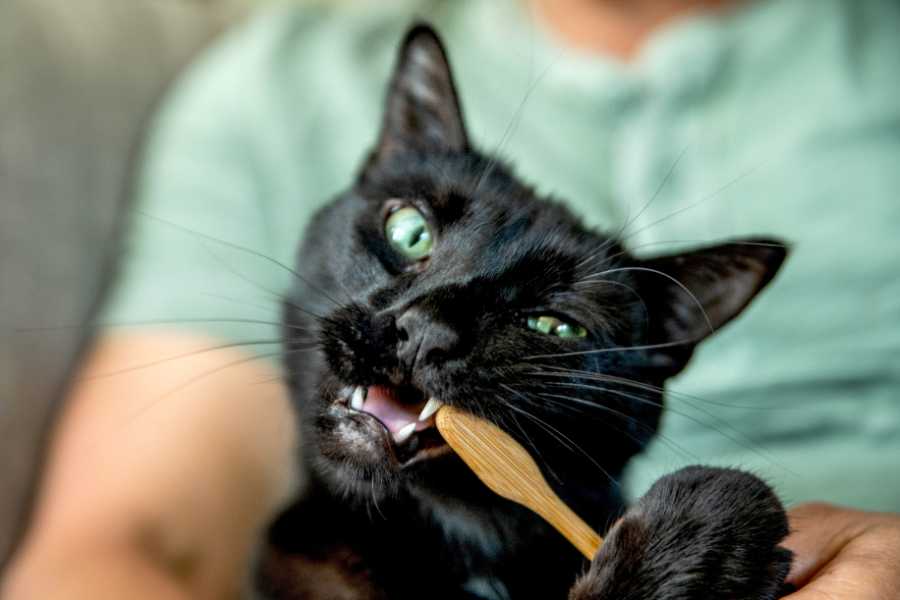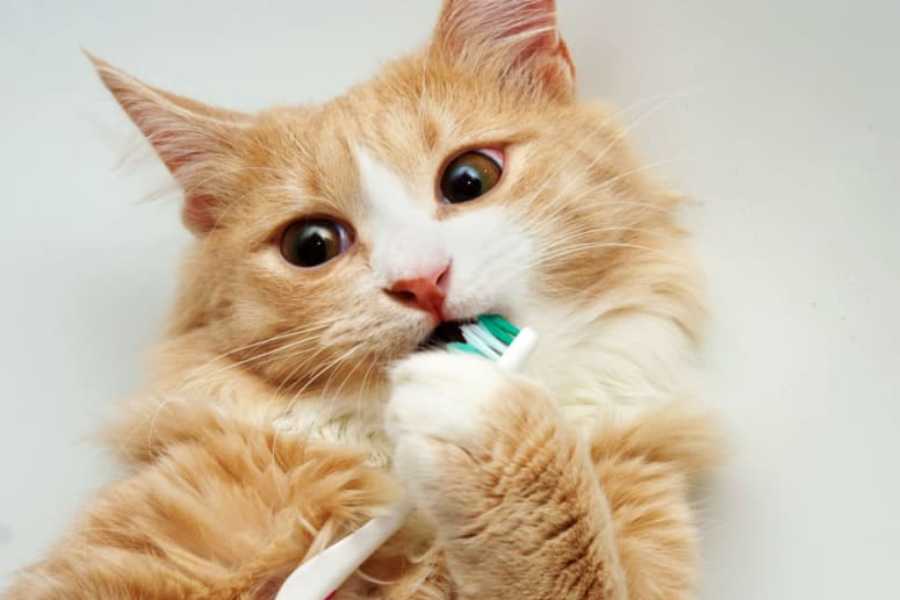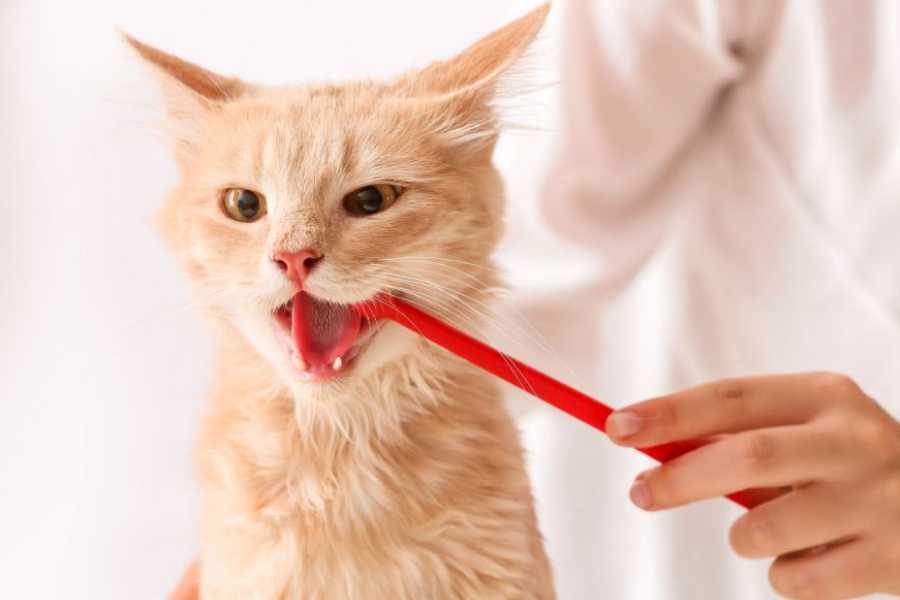How Often Should You Brush Your Cat's Teeth?

How often should I brush my cat’s teeth? ![]()
![]()
Cat teeth cleaning topic is often overlooked but is crucial for your feline friend’s health.
Maintaining your cat’s dental health is an essential part of their overall well-being. Whether you choose to brush their teeth daily, take them for regular dental check-ups, or use dental gels, the important thing is to take steps to keep their teeth clean and healthy.
The Importance of Dental Health in Cats 🦷

Just like humans, cats can suffer from dental issues. Plaque formation, inflamed gums, and other dental problems can cause discomfort and lead to serious health issues if left untreated.
Regular teeth cleaning can help prevent these issues and keep your cat’s mouth healthy. However, the question remains - how often should you clean your cat’s teeth?
The Challenge of Brushing Your Cat’s Teeth 😺

Brushing your cat’s teeth might seem like the right thing to do. After all, it helps break down plaque and prevent dental problems. However, it’s not always as straightforward as it sounds.
Cats, especially those not accustomed to it from a young age, might resist having their teeth brushed. This can make the process stressful for both you and your cat.
If you’ve adopted your cat as an adult, it can be even more challenging to introduce teeth brushing into their routine. Moreover, if you have multiple cats, brushing each one’s teeth daily can be a daunting task. ![]()
It’s important to remember that the goal is to maintain your cat’s dental health without causing undue stress to you or your pet.
Alternatives to Daily Brushing 🐾

While daily brushing might not be practical for all cat owners, there are other ways to maintain your cat’s dental health. Regular dental check-ups at the vet can help keep your cat’s teeth clean.
Yes, these procedures often require anesthesia, but they can be a great way to ensure your cat’s teeth are clean and healthy.
Another alternative is to provide your cat with raw bones to gnaw on. This can help scrape off plaque from their teeth. Remember, these bones should be raw and never cooked, and always supervise your cat while they’re gnawing on them.
There are also dental gels available that can help break down plaque without the need for brushing. These gels can be a good option if your cat resists having their teeth brushed. These alternatives can be just as effective as brushing and can be less stressful for your cat. ![]()
The Bottom Line 🎯

The decision to brush your cat’s teeth should be made in consultation with your vet. They can provide you with the best advice based on your cat’s age, health, and temperament.
If you decide to brush your cat’s teeth, start slowly and make the process as positive as possible. If brushing isn’t an option, consider alternatives like regular dental check-ups and dental gels.
For more information on cat health and wellness, check out our other articles such as why my cat has bad breath: causes and remedies and what shots are needed for cats: everything you need to know about cat vaccines.
We hope this article has shed some light on the topic of cat teeth cleaning and has provided you with some practical tips and alternatives to consider.
Remember, every cat is unique, and what works for one might not work for another. Always consult with your vet to determine the best dental care routine for your feline friend.
Your cat’s dental health is a key part of their overall well-being, and it’s up to us as responsible pet owners to ensure they get the care they need. ![]()
Tags
Share
Table Of Contents
Related Posts
Quick Links

